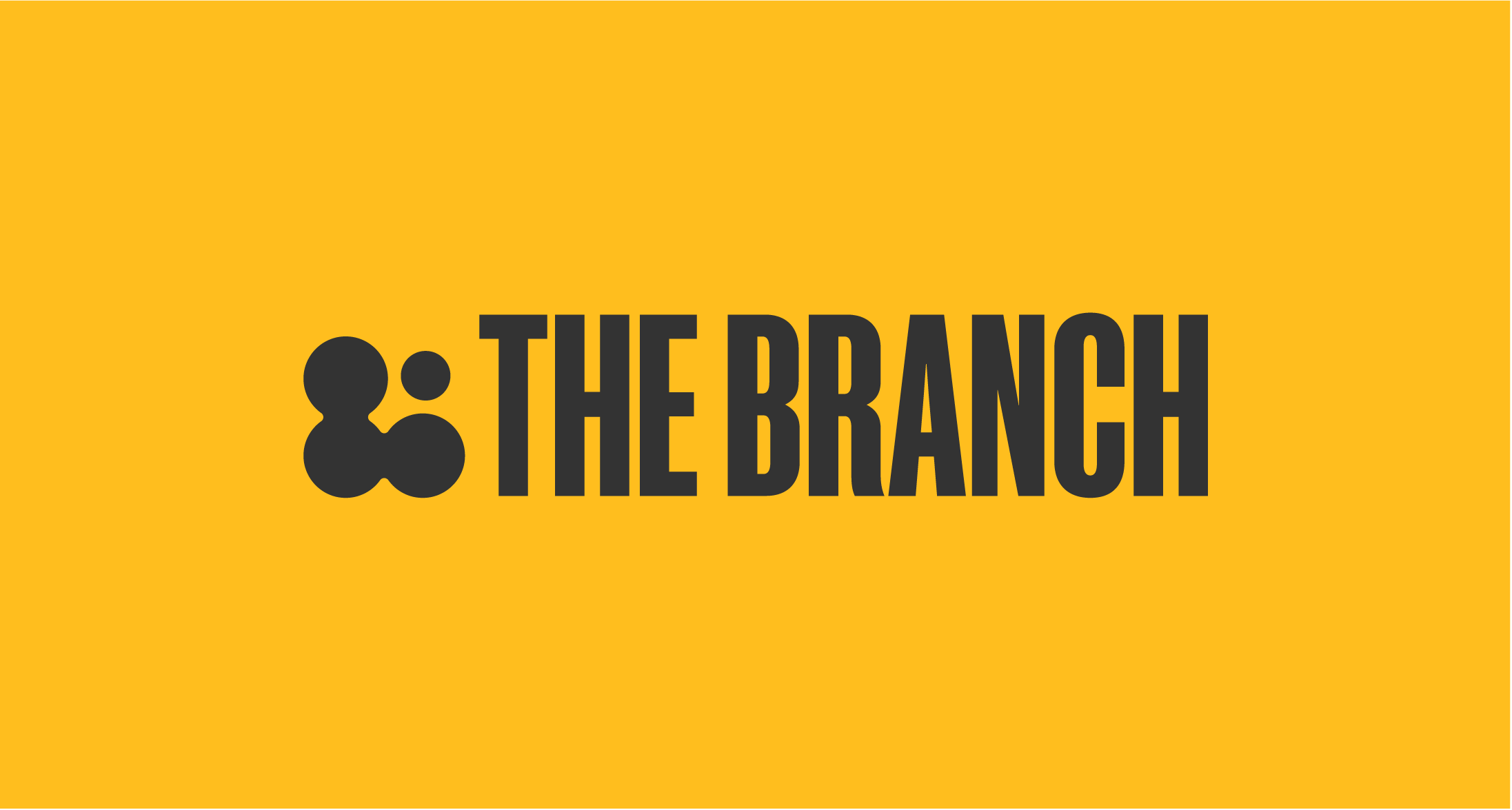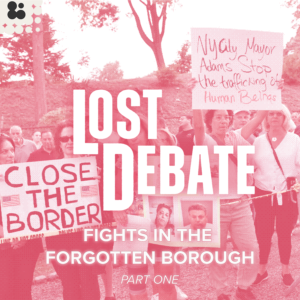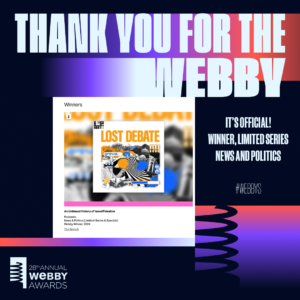From henceforth, Lost Debate will be called The Branch.
Why the name change? To start, we rarely debate on our shows. We more often have respectful discussions and nerdy deep dives. Our team briefly considered a change to “Lost Discussion,” but that doesn’t quite roll off the tongue.
The Branch has a double meaning. It evokes an olive branch to political and ideological opponents, a good-faith effort to engage with those whom we disagree. That spirit permeates all of the work we do. I’m a former Obama staffer and lifelong Democrat, but I host our flagship show with a Gen-Z libertarian/conservative New York Post columnist. Our Spanish language show Pulso y Péndulo pairs a former Republican member of Congress with a more liberal-leaning Univision journalist. And our education commentators span the gamut from conservative Gen-X veteran educators to socialist teenage students. But we aren’t Crossfire; our conversations aren’t performative. We’re all genuinely trying to find truth and understanding.
Our new name is also an allusion to the fourth branch of government, a term used to describe the role of civil society and the media in ensuring a vibrant and enduring democracy. In this sense, we focus on the stability, improvement, and longevity of our civic institutions, laws, and norms. Big yawn, I know. Our vibe isn’t as fun as the down-with-the-system populist ethos of our friends in alternative media (more on that below), but we believe our democracy (or republic, if you will) is extremely fragile and totally underrated. Sure would be a shame if something happened to it!
What We Do
We’re a non-profit digital media company. We believe the most critical conversations in society happen in the dark corners of the internet—on platforms dominated by political arsonists, nihilists, and extremists. Our mission is to infuse more empathy, nuance, and objectivity into those conversations.
In service of that mission, we strive to provide objective and entertaining news and commentary. And we approach that work in a few unique ways:
- Target the overlooked: We focus on audiences other media has underinvested in: political eclectics, independents, Black and Brown moderates, Gen Z, Spanish speakers, and international audiences.
- “Whole buffalo” approach: We aren’t wedded to any one platform and adapt content from the same show for YouTube, TikTok, and Instagram.
- Ideological diversity: Our hosts have different political beliefs yet complementary values around democracy, dialogue, and disagreement.
- Surprise the audience: Our independence means we keep our audience guessing about where we’ll come down on the key issues.
Using this model, we’ve achieved promising early results. In 2022, our podcasts were downloaded 4.4 million times and social media users engaged with our content 2.2 million times. Learn more about our shows and newsletters here.
New Media, Old Problems
When we started this journey over a year ago, we thought we’d primarily be an antidote to an insular, biased, and ossified mainstream media. In that sense, we eagerly took our seats at the “alternative media” table in the cafeteria. Many of our comrades at that table have pushed us to sharpen and, in some cases, change our perspective on critical issues. For example, I took the Wuhan Lab Leak theory more seriously and earlier than many of my progressive friends because of conversations with hosts and writers from other outlets. The same could be said of a host of issues unrelated to the pandemic, such as debates around policing, regulation, and campus free speech.
Yet despite the many strengths of our alternative media colleagues, too many of them are repeating the same mistakes they sought to correct — and are showing an alarming lack of rigor and humility.
- They practice motivated reasoning, overselling evidence for their pet theories and underselling or ignoring evidence for inconvenient ones.
- They embrace a faux populism, playing on the emotions of their audience by telling simple stories with half-baked and disingenuous solutions — and clear heroes and villains.
- They see the humanity in their friends but not their opponents. If an institution they hate makes a mistake, it’s often because of some core sinister motive. If an ally or ideological fellow traveler makes a mistake, to the extent they acknowledge it, it’s chalked up to good intentions gone wrong.
- They throw many darts at the board, claim credit for the ones that hit the bullseye, and ignore the rest. “January 6th was an inside job. Ukraine is a wag the dog play. The 2020 election was stolen. Biden will never indict SBF. Ivermectin is a miracle drug. The press is suppressing the Wuhan theory.” When one of many theories turns out to be accurate, they hold it up as an example of their credibility while often quietly moving from the rest.
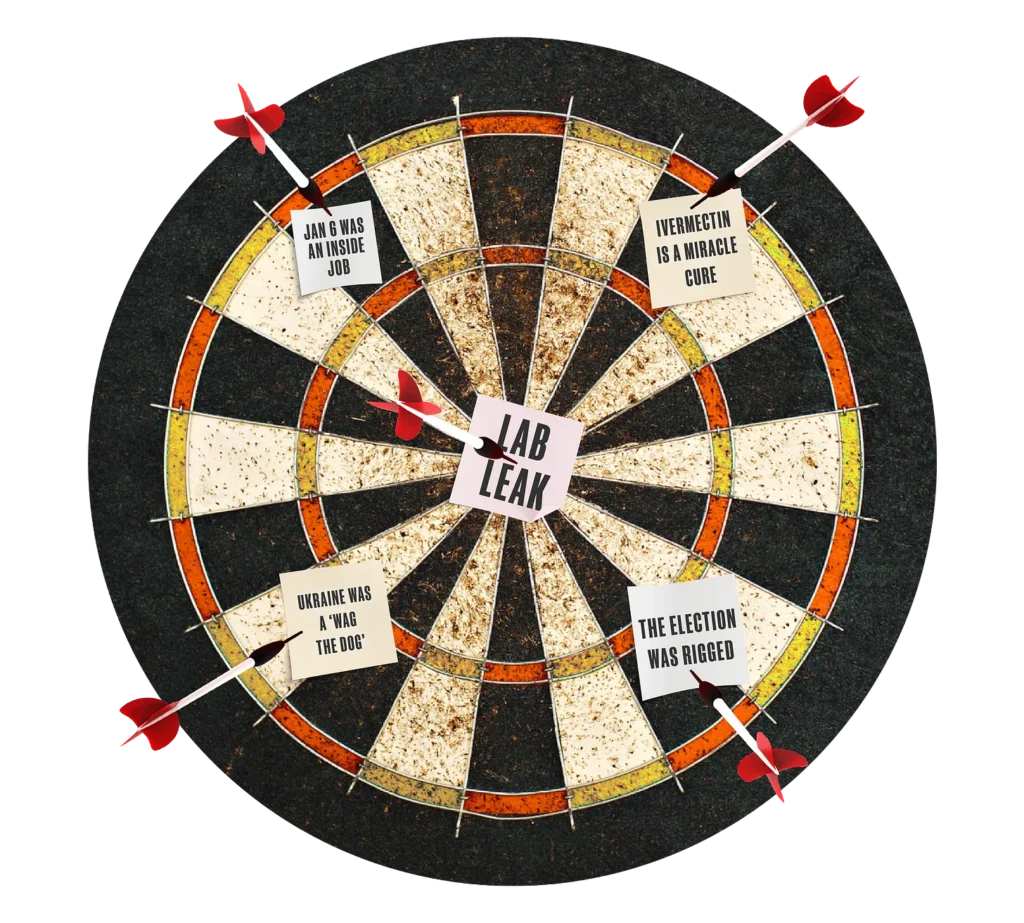
- They “just ask questions” to avoid owning irresponsible theories while steering their audiences with reckless speculation.
- They overemphasize the mainstream media’s role, painting them as the big bad and themselves as the underdogs — failing to consider that their own alternative media outlets often garner significantly larger audiences than any cable news show.
I could go on and talk about both-sidesism, the insular back-scratching, or the creeping anti-intellectualism. I trust you get the picture.
This is, of course, itself a generalization. “Alternative” media is a diverse ecosystem that includes a multitude of voices, some of whom avoid many of these fallacies. The worst offenders, however, command the largest audiences. In fact, what we call alternative media is much larger than what we consider mainstream media.
Nothing I write above absolves the legacy media of their many sins. I could write a long list of their common fallacies and biases, but others have made those points much better than I have. I’m also less concerned with traditional outlets because they lose audience and influence daily. They are yesterday’s story. The more important question is what we replace them with.
In short, I thought we were setting out to correct the problems in mainstream media, but I have become convinced that our colleagues in alternative media are growing more smug and powerful and less accountable or reflective than any traditional outlet has.
How We’re Different
We’ve sometimes made the moves I criticize above. That’s why we spend a tremendous amount of time critiquing our own work — and refining our values, which consist of the following:
Aggressively Humble: We “steel-(wo)man” our arguments by identifying the strongest and most nuanced forms of the other side of a position before engaging with it. We also admit mistakes and rectify those mistakes with an effort commensurate with the harm caused by our errors.
Anti-populist: It’s easy to say, “fuck the experts” or “abolish the FBI” when you don’t have skin in the game or an obligation to articulate an alternative. That’s why we believe in the power of institutions to improve people’s lives and think they should more often be reformed than torn down. We also fight the urge to tell simple stories about complex issues and are careful not to overuse emotions like outrage, hate, and contempt.
Independent: We say what we believe, even when it’s unpopular or costly to do so. That means we aren’t afraid to take on powerful interests, invite heat on social media, or offend our friends.
Ethically Contrarian: We provide little value as the thousandth voice in a chorus. Whenever consensus forms around a position, it is usually of little interest to us unless we challenge that consensus. At the same time, we aren’t Skip Bayless and Shannon Sharpe; we aren’t contrarian for its own sake. Instead, we aim to find the stories and arguments that are both true and overlooked.
Focused on the Future: We believe most media outlets spend too much time looking backward, rehashing old fights, and nursing past grudges. Our job is to paint a vision of the world we want the next generation to inhabit, which means we spend considerable time on how our schools can best set up kids for success.
Welcoming: We believe a diverse team is a strong team, and we embrace colleagues from different political, racial, ethnic, economic, and cultural backgrounds. But we’re defined not by our differences but by shared values and goals.
These values are, of course, a work in progress. If they look the same a year or five years from now, we’ve done something wrong.
What Next?
We’re making a few key investments in the years ahead.
Unbiased, Un-sensationalized 2024 Coverage
This coming election will be the most education-focused we’ve ever seen. With the rise of DeSantis, the prominence of hot-button topics like Critical Race Theory, trans rights, Education Savings Accounts, and the looming Supreme Court decision over Affirmative Action — candidates for office up and down the ballot will be talking about K-12 and higher education every day. We believe both traditional and alternative media have a hard time thinking straight about many of these topics — and often favor superficial and sensationalized analysis over substance. Given the expertise of The Branch’s team, we have both an opportunity and obligation to get out and engage with voters across the country and help our audience make meaning of debates as they unfold.
Quite frankly, this is what we’ll be best known for in the years ahead: the quality and depth of our education policy, practice, and politics reporting and commentary. We have covered and will continue to cover many issues outside of education. Still, the best of what we produce will always be about our kids and their future.
Gen-Z Newsroom
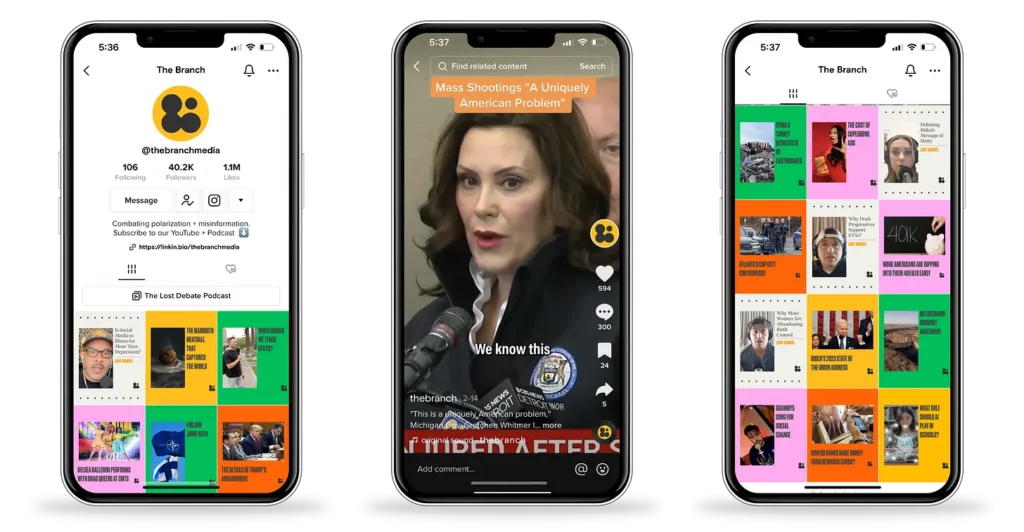
The majority of our audience is Gen Z, which happens to be the most malleable and independent generation. They are political eclectics — more resistant to party politics or simple labels.
Where do they learn about the world? A quarter of U.S. adults under 30 now regularly gets news on TikTok, and a similar percentage of Gen Z relies on YouTube. That’s double the amount who stay informed through Twitter. News outlets have been slow to invest in these platforms, particularly TikTok because it’s hard to monetize.
That’s why we’re working this year to launch a newsroom dedicated to Gen Z. It will provide a steady stream of breaking news and in-depth explainer content for TikTok, Instagram, and Youtube (it’s important to diversify in the event of a TikTok shutdown). We’ve hired a cadre of Gen Z creators and journalists and have been busy testing content ahead of our launch.
The Global Fight
Wherever we look, we see struggles very similar to our American fight for democracy. Whether it’s India, Israel, Italy, Mexico, or Brazil — institutions, norms, and ideals are under attack by populist nihilists bent on creating illiberal democracies or worse. These movements consume much of the same media and trade in the same ideology across borders. That means it’s on us to link with like-minded citizens of these other countries to cover authoritarian overreach and tell a different, more compelling story about the future. We have several projects in the works on this front that we’ll begin to roll out over the next year.
This Is Personal
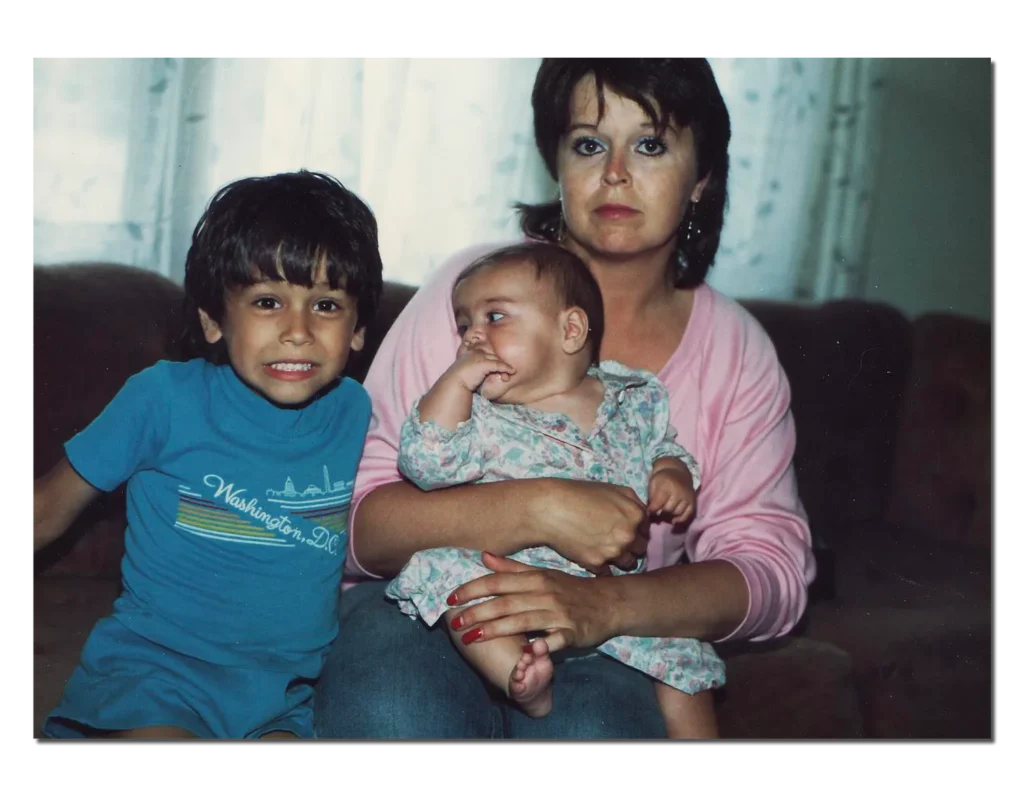
I’ve spent all of my adult life — and much of my childhood — deep in the wondrous hellscape that is American politics. I was born into polarization — with a Republican dad and Democratic mom, who, before they got divorced, would fight incessantly about politics. One of my earliest childhood memories is of my parents arguing over which president was responsible for starting the Vietnam War.
I still believe in this fucked up country of ours, despite having ample reason not to. I may be one of the only people left who clings to Obama’s vision of a more united and generous politics. I see it in my family, where we still love and care for each other despite our different politics and our collective trauma.
I see it in my childhood neighborhood in Staten Island, one of the last swing districts in America — where half of my close friends voted for Trump (enthusiastically) but who still cheered on my career in Democratic politics.
I saw it during the Obama campaign, where I saw the man himself up close and can say without a shadow of a doubt that he’s a decent, talented, and visionary leader. The fact that our politics yielded him — perhaps the best we could have possibly produced, means our system may not be totally doomed.
I saw it down South, where I was welcomed with open arms by Republicans, who became some of my closest friends and collaborators as we built a network of schools and lobbied for better education policy.
I saw it at Arena, where I was privileged to support young, visionary leaders like Lina Hidalgo and Lauren Underwood.
And I see it now at The Branch, where I get to work with a group of young, diverse, eclectic thinkers who genuinely listen and persuade each other.
The Branch is not for profit. By removing the profit motive, we have the freedom to tell the stories we want to, the way we want to. This means we depend on your generosity so we can keep creating meaningful content. Support our work here.
